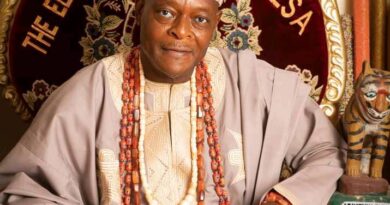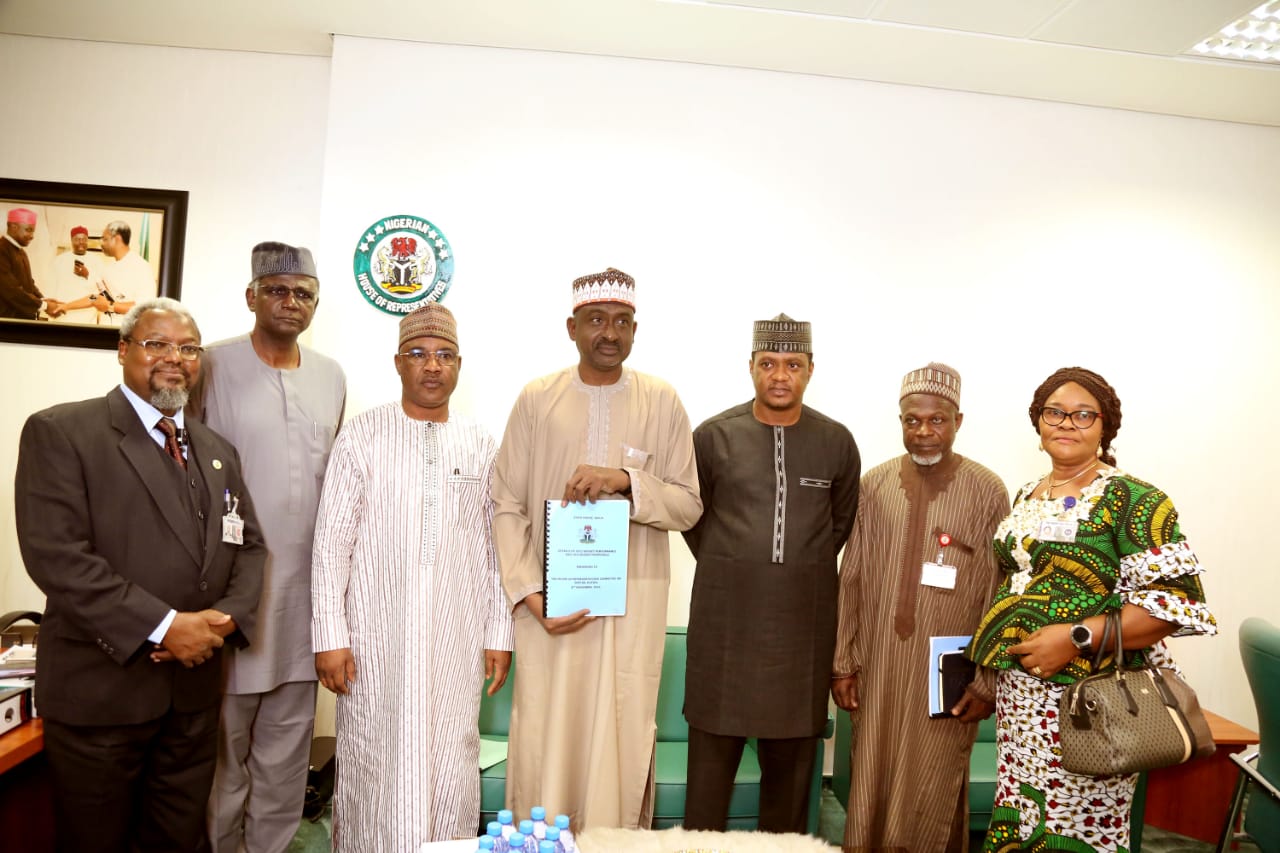If I were Tinubu Part 3: Setting a Tinubunomic agenda 2, By Segun Adeleye
SPORT
Sport, particularly football is a lifestyle in Nigeria. It’s one of the few endeavours that have fostered a sense of national cohesion among the country’s heterogeneous population. Whenever a Nigerian team is playing, no one will ever bother to know which tribes the players are from.
Many Nigerians that have failed to realized their potentials in the country have found homes in foreign lands as sportsmen and women with some embarrassing moments when they had to compete with the country of their birth as in the 2020 Tokyo Olympic when five ‘foreign Nigerians’ won medals for other countries whereas Team Nigeria returned home with only two medals.
But sport is also a big business which Nigeria can transfer its passion to earn revenue and create jobs for the youths. With the global sports said to yield about $1.3 trillion annually with countries like UK earning $42 billion, and US earning $38 billion, revenue from the English Premier League alone was said to have grown by 8% to €5.5 billion in 2020/21.
There is hardly any top sporting competition in the world that Nigerians will not show up, and at home, every weekend of the years, millions of Nigerians look up to matches in the Premier League, La Liga of Spain and Serie A of Italy for emotional tranquility, entertainment and lately for betting.
As the country is said to be earning mere $350 million annually from sport, the most creative way the new government can engage the youths will be to transform the sector to be run as business as in Europe, Jamaica, Brazil, South Africa among others.
Starting with football, with government as the major sponsor of sports in Nigeria, the new administration should work out a scheme where successful Nigerians with passion for sport like Aliko Dangote, Femi Otedola, Mike Adenuga, Abdul Samad Rabiu among others can be encouraged to buy majority shares in the existing clubs in each state and provide incentives for them to upgrade or build new stadia and start running the clubs professionally with TV rights for live coverage of matches among others. The clubs would be made to develop academies to enroll talented youths to feed their senior teams. With time, the local league will be attractive such that mini-competitions can be organized between Nigerian clubs and foreign clubs during their pre-seasons, while in the medium term; foreign stars will be attracted to play in the league just as Cristiano Ronaldo is currently plying his trade in Saudi Arabia.
There are many sports like rugby, base ball among others that are not yet developed which Nigeria should also embrace. The journey of a thousand miles starts with one step. Interschool competitions should be reintroduced from primary to tertiary institution level for new starts that will make Nigeria proud in international events to emerge. While many Nigerian youths will have opportunity to travel and gain international exposure, the country will attract huge foreign exchange through sign-on fees of sport men and women. Moreover, the preparations for Nigeria to hold major sporting events like the FIFA World Cup and Olympic in our life time should start now.
Moreover, with about 60 million Nigerians between the ages of 18 and 40 said to be involved in active sports betting, with estimated market of over $2 billion each year, the development of the local league will create more business and revenue stream for the youths and the economy.
ENTERTAINMENT
As for entertainment, Nigeria has made a bold statement on the global stage in recent years with its movies and music while there is huge potential to grow more and create jobs.
The Nigerian movie business, known as Nollywood has become one of the leading film industries in the world, overtaking Hollywood in terms of the amount of films they are producing yearly.
But while the market size, measured by revenue, of the Movie & Video Production in Hollywood is $27.9 billion in 2023, the total revenue from Nigeria’s entertainment segment was projected to reach US$4.77m in 2022 and US$6.51m by 2027.
However, most stakeholders believe that Nollywood as it is currently run is like a lawless space with pirates and charlatans dictating the tone.
For Nollywood to create thousands of jobs and boost earning, the President-Elect should as a matter of urgency help facilitate policies that will protect content creators. Copyright violators must be driven out of the system for the real creative people to make decent living from the conceptualization stage down to exhibitions, including payment of royalties by radio and TV stations.
THE BLUE ECONOMY
The blue economy which currently sounds like a puzzle would be the next biggest sector of the Nigeria’s economy if the new government can speedily explore the potential through Public, Private Partnership (PPP) and create an enabling environment for the African Continental Free Trade Agreement (AfCFTA) to thrive.
Blue economy globally valued at over $24 trillion with capacity to generate at least $2.5 trillion each year is the sustainable use of ocean resources for economic growth, improved livelihoods, and jobs while preserving the health of ocean ecosystem.
The blue economy has diverse components, including established traditional ocean industries such as fisheries, tourism, and maritime transport, but also new and emerging activities, such as offshore renewable energy, aquaculture, seabed extractive activities, and marine biotechnology and bioprospecting.
The outgoing government was late at doing something about the blue economy, but it later put in place an Expanded Partnership Committee on Sustainable Blue Economy chaired by Vice President Yemi Osinbajo (SAN) which the Tinubu government should urgently empowered for speedy delivery of their mandate.
It’s noteworthy that Alfe City Institution, a resource, solution, and development driven firm with activities in capacity building across Africa has championed the campaign to develop the blue economy sector in Nigeria.
As the Blue Economy captures a range of activities and sectors, Alfe City said three overarching issues which stand out due to their importance towards developing a sustainable blue economy are healthy coastal and marine ecosystems; sustainable fisheries; and pollution from land based sources.
TAX
Getting Nigerians to pay tax will be a major issue that the Tinubu government must tackle. Beside the complicated process of paying tax and absence of huge informal sector from the tax bracket, people are not encouraged to pay due to the belief that government had nothing to show for all what it’s earning from every sector except embezzlements.
According to the World Bank, “collecting taxes and fees is a fundamental way for countries to generate public revenues that make it possible to finance investments in human capital, infrastructure, and the provision of services for citizens and businesses. Preliminary analyses estimate the financing gap for achieving the Sustainable Development Goals for developing countries at about $2.5 trillion annually. Much of this financing gap will need to be met by increased private-sector investment in sustainability, which requires appropriate tax policies to create the needed price incentives.”
Nigeria’s tax-to-GDP ratio in 2020 at 5.5% was lower than the average of the 31 African countries in Revenue Statistics in Africa at 16.0%.
According to the Federal Inland Revenue Service (FIRS), Nigeria had 41 million taxpayers as at 2022 up from 20 million in 2019. It said that despite the 41 million tax payers, the country still earned lower than what others with similar indices across Africa generate from personal income taxes (PIT).
The Tinubu administration must continue and complete a reform in the tax management system so that it will be very easy for corporate and individuals to file their tax returns regularly. Not a few observers were surprised that the former chairman of FIRS, Babatunde Fowler who seemed to have championed a reform of the system did not get a second term in office to complete what he started.
The Tinubu administration should as a matter of urgency shop for another capable technocrat from home or abroad that will head the FIRS and bring the tax system up to global standard.
*Segun Adeleye is the President/CEO, World Stage Limited; Creator, OELA Music; Author of ‘So Long Too Long Nigeria’ and Founder/Chairman, Segun Adeleye Foundation for Good Leadership in Africa (SAFFGLIA).



